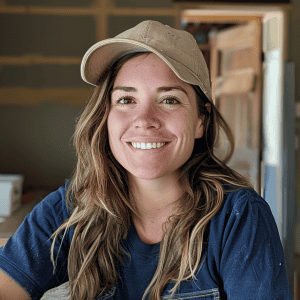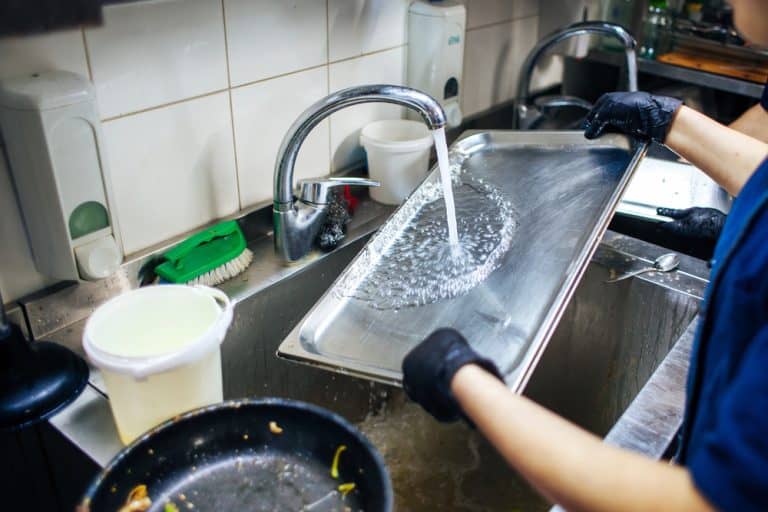Assisted living staff have personal connections with seniors unlike any other job. They are often the “eyes and ears” of the facility, and a vital part of its operation. These caregivers are often the unsung heroes of elder care. The daily duties of an Assisted Living staff can be varied and demanding. Personal Care Assisted …
How to Maintain Independence in Assisted Living

Assisted living staff have personal connections with seniors unlike any other job. They are often the “eyes and ears” of the facility, and a vital part of its operation.
These caregivers are often the unsung heroes of elder care. The daily duties of an Assisted Living staff can be varied and demanding.
Personal Care
Assisted living staff members are on the front lines of caregiving, often having daily interactions with residents and providing housekeeping, meal preparation, social activities, and transportation. They provide basic support services such as bathing, dressing, and eating. They also keep accurate records of resident activities, behavior, and mood to ensure that the senior’s needs are met. They are also responsible for maintaining a clean and safe environment, organizing group activities, and leading outings to promote social and physical well-being.
In larger facilities, a registered nurse (RN) takes on leadership roles such as head nurse or director of nursing. They address medical concerns, create wellness programs and communicate with family members. Licensed practical nurses (LPN) work under RNs to administer medication and perform health examinations on the elderly.
A resident’s care needs will change over time, and the assisted living staff will need to reexamine their plan of action. Bradley explains that the team at Perla may talk to the family members, observe a senior’s physical condition and conduct mental health assessments. They may even bring the resident to a physician or hospital for additional testing or emergency care.
As a result, some specialized positions are required in an assisted living home, such as a registered dietitian or activity director. These professionals must be able to cater to a variety of dietary restrictions, allergies, and preferences while making sure the senior is getting enough protein, fiber, vitamins, minerals, and fluids.
Caring for seniors can be physically and emotionally draining, but it’s a career that’s worth pursuing. It requires compassion, patience and a dedication to helping older adults live with dignity and independence. A strong work ethic and a willingness to learn the unique responsibilities of each position are essential for success in this rewarding field. Many caregivers are drawn to this profession because they have a genuine connection with the elderly. They want to help people in their twilight years and know that this is an opportunity to do something meaningful. The rewards are immeasurable. This is why it’s so important for senior living communities to employ a hardworking and qualified staff that can meet the needs of their residents.
Medication Management

Medication management is arguably the most important service assisted living staff provides, and it protects residents from harmful drug reactions. In the US, every year 1.3 million seniors are injured by medications and 200,000 are hospitalized due to drug interactions. Assisted living staff are trained to recognize and manage these issues, working with physicians to ensure their residents are receiving the correct medication dosages and at the right times. Assisted living communities should also utilize technology to reduce medication errors and streamline administration. For example, automated compliance medication packaging helps prevent over- and under-medication, while barcoding systems help to ensure that a resident receives the right medicine at the right time.
Medication education is also an important aspect of medication management. Assisted living staff often work closely with residents and their families to promote good medication adherence. This can be done by educating them about the importance of taking their medications and any side effects they may experience, as well as by identifying barriers to adherence and addressing them accordingly. Achieving better adherence can greatly decrease the risk of complications that could lead to hospitalization and ensure residents’ health and wellbeing.
Aside from medication administration and education, aides also monitor residents’ compliance with their prescription regimens and work to address any problems that may arise. This is a vital part of improving the quality of care offered by assisted living facilities, as it allows them to identify and act on any potential medication-related issues before they become severe and potentially life-threatening.
Lastly, aides are responsible for ensuring that residents’ medical records are up-to-date and accurate. This includes tracking changes in a resident’s condition and communicating these updates to their family members. Keeping accurate and complete medical records is one of the most important aspects of a resident’s safety, and it is an area in which assisted living staff excels.
In addition to ensuring that resident records are up-to-date, healthcare workers also provide assistance with scheduling appointments and other essential tasks. Depending on the type of assisted living facility, these healthcare workers can include registered nurses (RNs), licensed practical nurses (LPNs) and certified nursing assistants (CNA). This type of support is vital for ensuring that residents’ needs are met in an efficient manner. Moreover, it can also allow caregivers to focus more time on their residents and their needs.
Social Interactions
Staff members of assisted living facilities work hard to provide a pleasant, welcoming atmosphere for their patients. Whether they’re providing meals or overseeing medication distribution, they strive to create an environment where their residents feel comfortable and safe. These employees also encourage social interactions between residents to foster a sense of community and belonging. They also communicate regularly with family members and update them on their loved one’s condition.
Depending on the facility, assisted living staff may include registered nurses (RN), licensed practical nurses (LPN) and certified nursing assistants (CNA). Each type of healthcare worker has different responsibilities, but their primary goal is to keep residents safe, healthy and happy.
To accomplish this, the aides and caregivers of an assisted living facility often need to spend long hours on shifts. This can be difficult because it interferes with their ability to interact with their loved ones in person. However, if their work is done well, they can make a real difference in the lives of their patients.
Many assisted living workers undergo training to prepare them for their roles and responsibilities. For example, CNAs go through a state-approved certification program to learn the skills they need to help their patients bathe, dress, and move around their home. Other staff may receive extra training to care for patients with memory loss or other cognitive issues, as these residents require more specialized care.
The high demand for nursing services in assisted living facilities means that there aren’t always enough staff to meet residents’ needs. This is why it’s important for families to keep a close eye on their loved one’s care and ask questions when they have them.
Additionally, it’s beneficial to establish a virtual or phone communication routine with your loved one’s assisted living team. This way, you can share helpful feedback with them and ensure that their approach to your loved one’s care is aligned with your expectations.
Finally, it’s crucial to show your appreciation for the hard work of the aides and caregivers at your loved one’s assisted living home. This can be as simple as a heartfelt note or a verbal expression of gratitude. You can also help them build relationships by sharing personal details about your loved one’s life and their family history with the staff.
Communication
A well-trained and dedicated staff is a major component of any assisted living facility. In addition to providing direct care to seniors, they manage many other tasks related to the running of the facility including marketing, budgeting, scheduling, preparing financial reports, and ensuring compliance with all regulatory requirements and standards.
Many staff members are drawn to this type of work because of their strong connection with seniors. They often have a passion for helping others, and they enjoy the sense of satisfaction that comes with making a difference in their lives.
When staff is not feeling a sense of purpose and fulfillment, it can lead to burnout. It is essential for senior care providers to keep the lines of communication open and provide opportunities for their staff to feel like a part of the team.
One of the best ways to do this is by using a communication system like Xenia that provides an all-in-one solution for all the different types of staff working at a given location. This reduces the amount of time and effort needed to maintain a consistent flow of communication, which will help keep everyone on the same page about important updates and changes.
In addition, a communication platform can also be beneficial for reducing the need to resort to paper-based methods for communicating with family caregivers. Using paper-based methods can cause important information to get lost in the shuffle and can lead to gaps in care for your loved one.
When it comes to communicating with your elderly loved ones, be aware of how they might respond and try to avoid using language that could be interpreted as ageist or condescending. Instead, use language that is positive, respectful, and empathetic to encourage them to open up about their feelings and experiences.
Lastly, don’t forget to keep your family members in the loop about what’s happening at their new home. It will help ensure their loved ones receive the care they need, and it will also reassure them that you’re on top of things. It’s important to set up a virtual or phone communication routine that will allow you to stay updated about your loved one’s care and provide helpful feedback on how they can improve their services.









